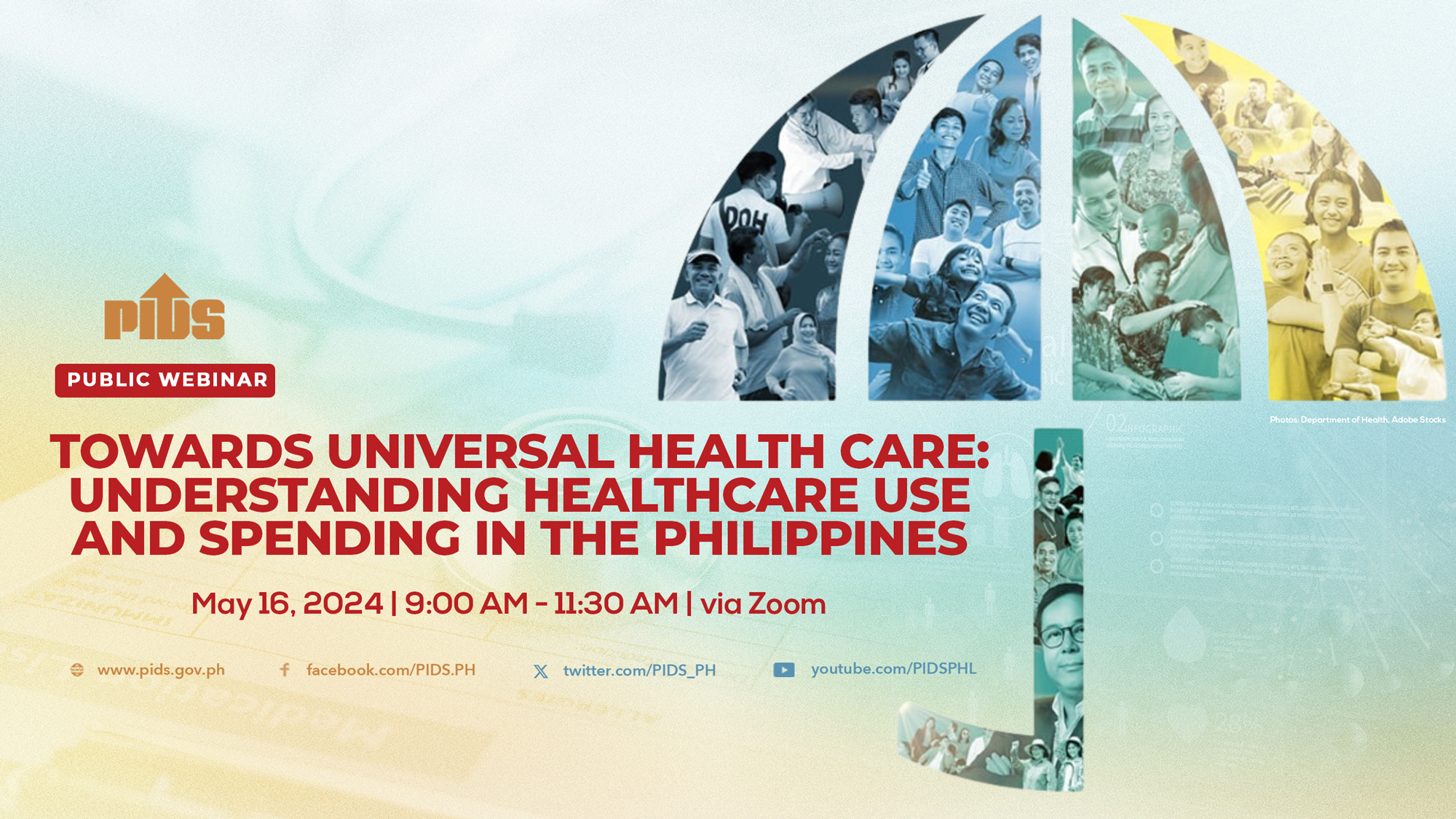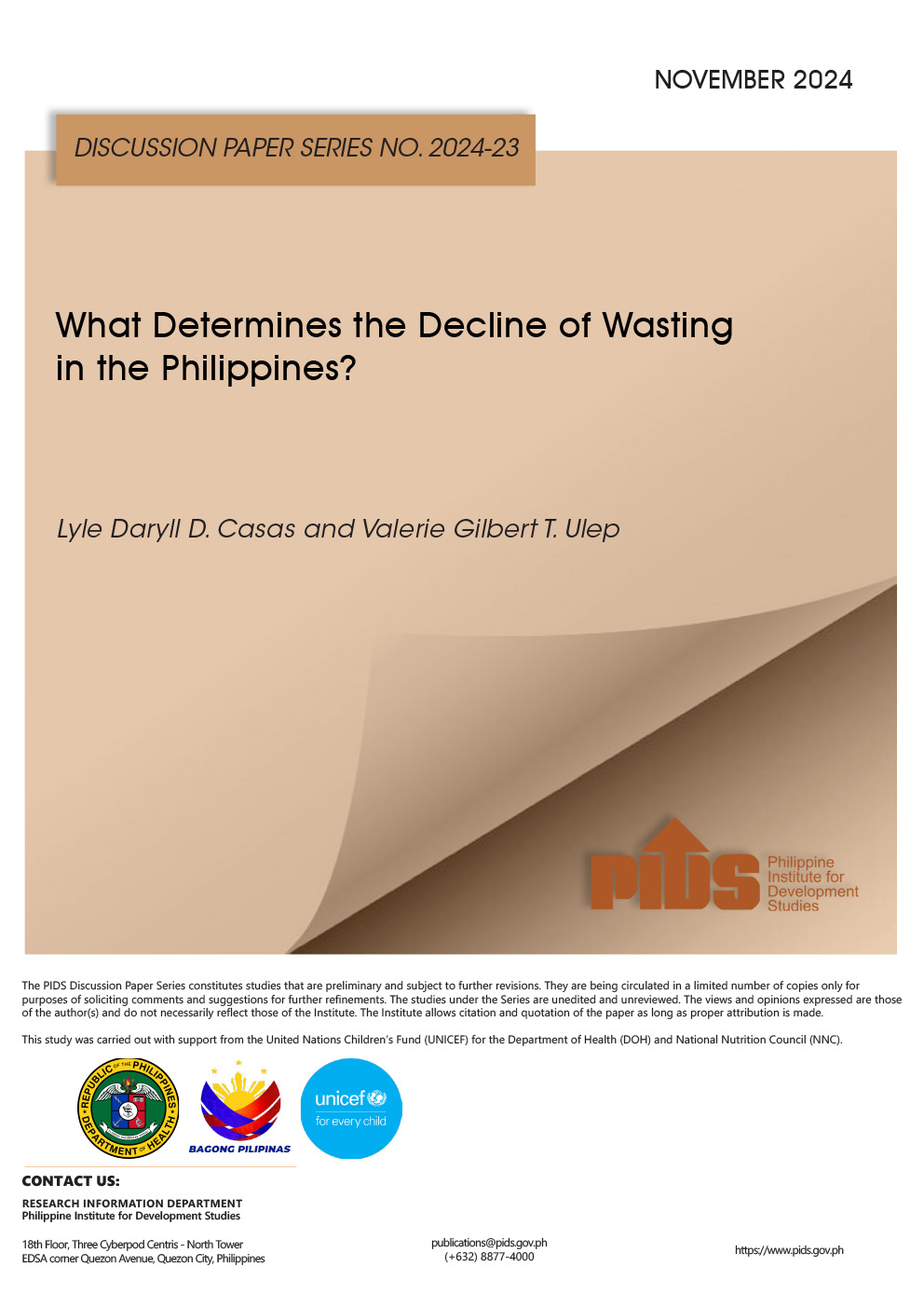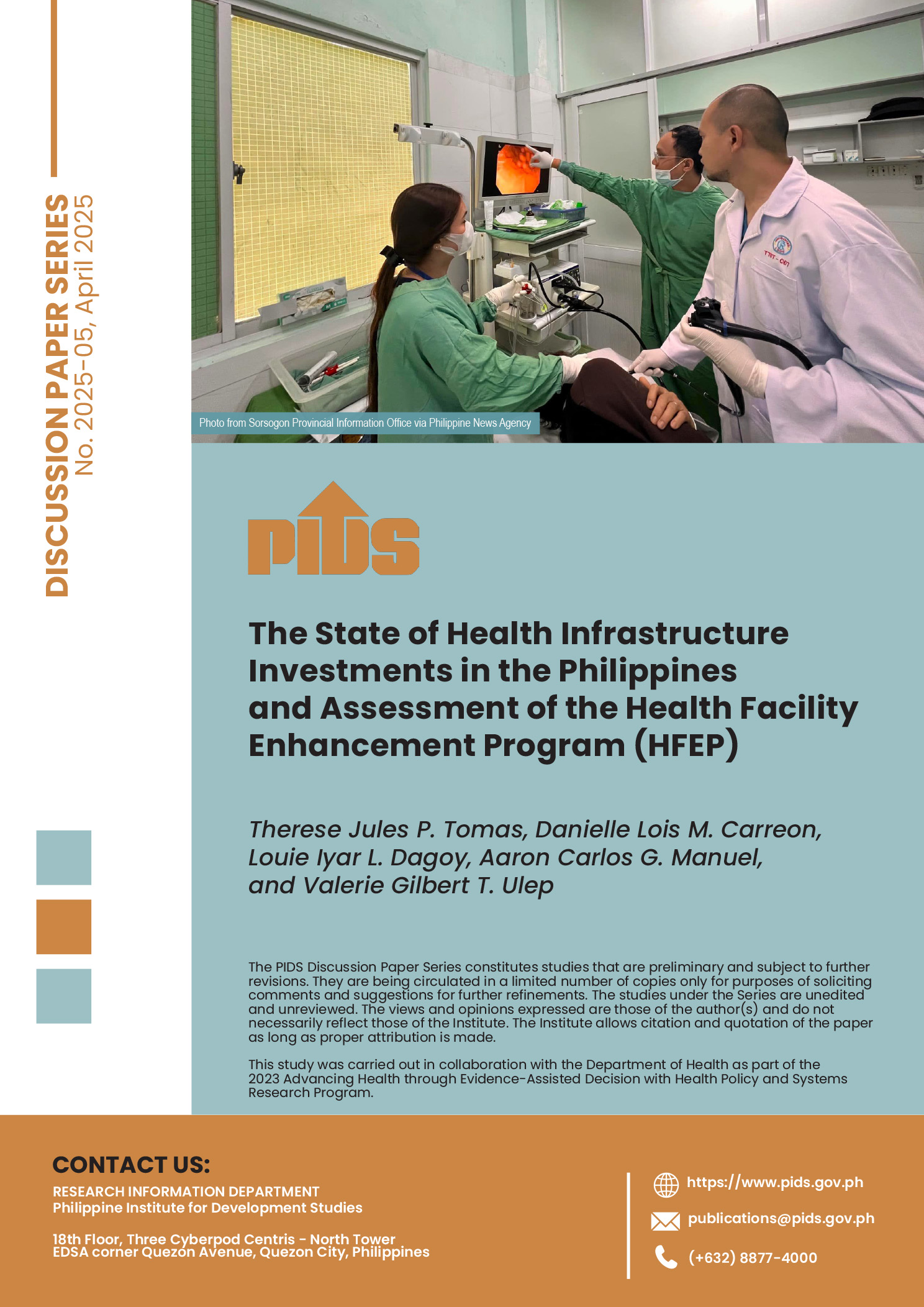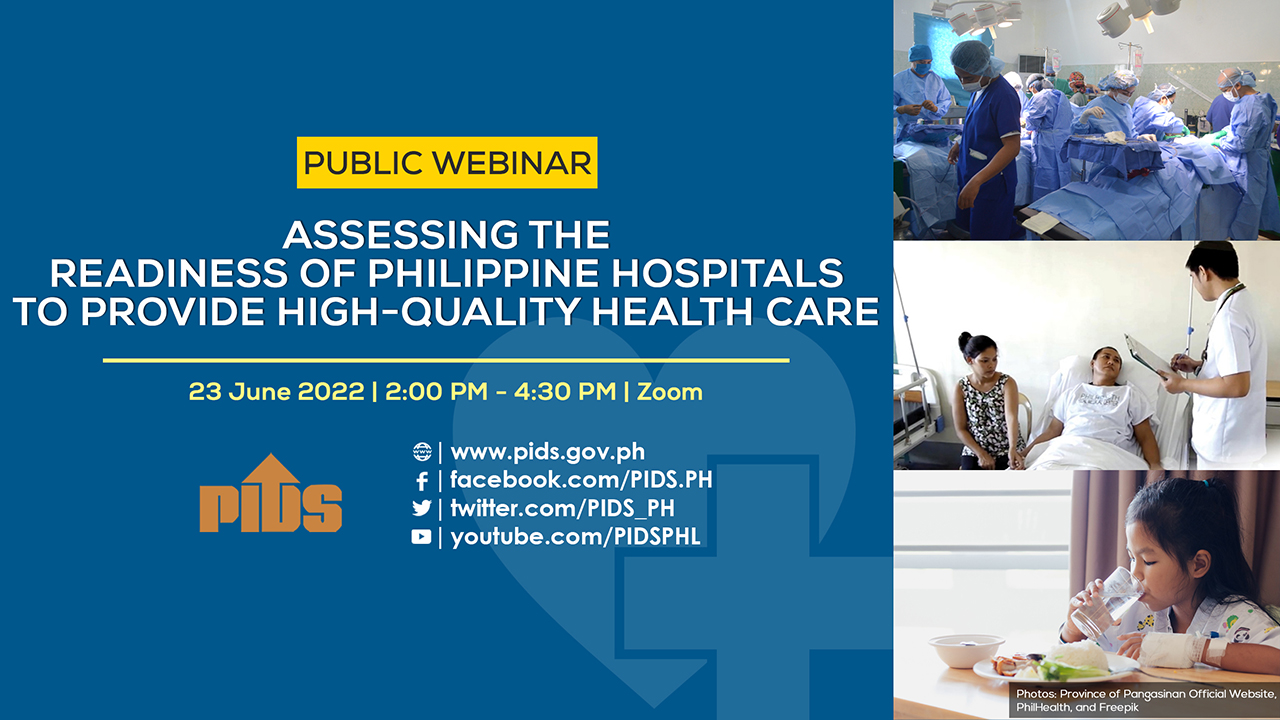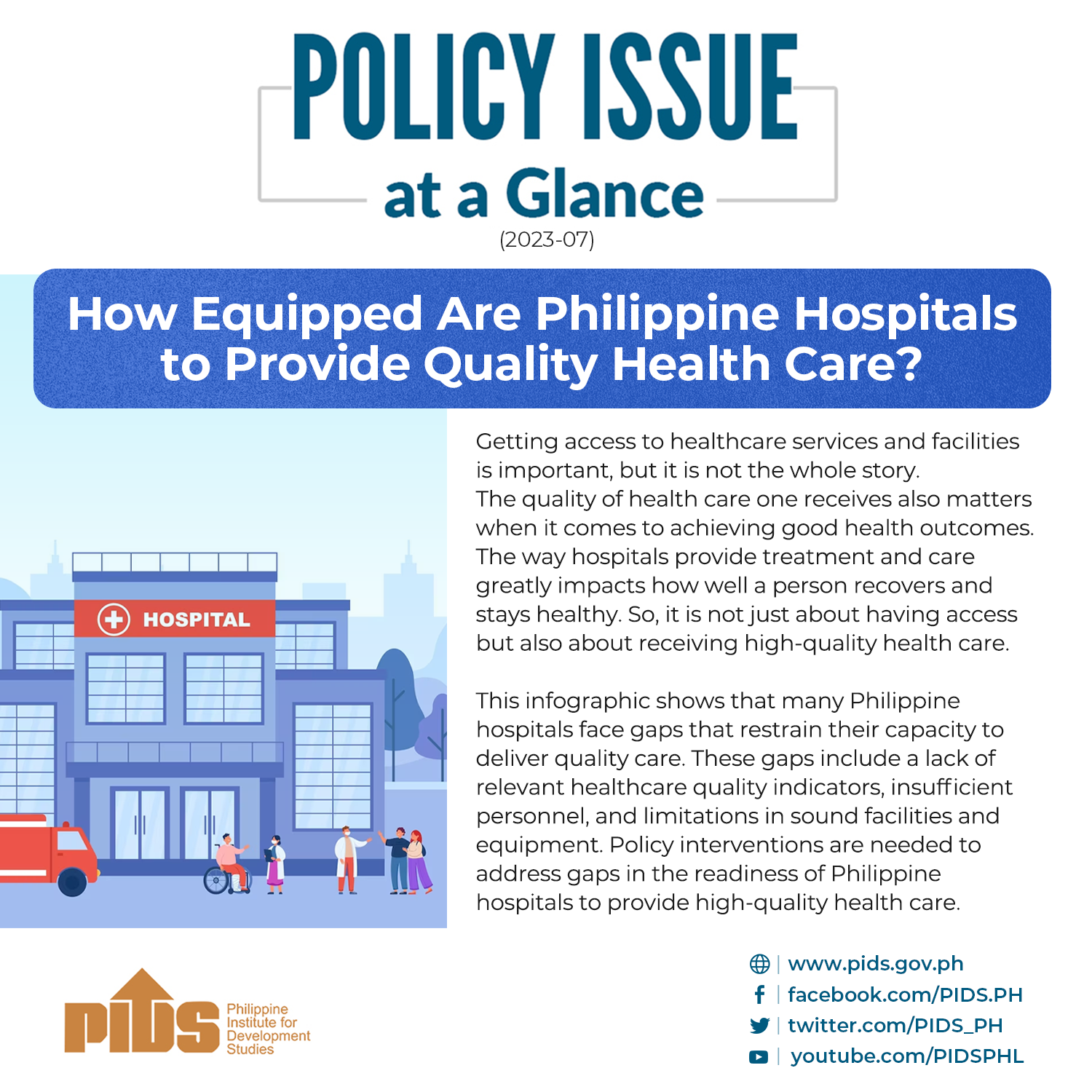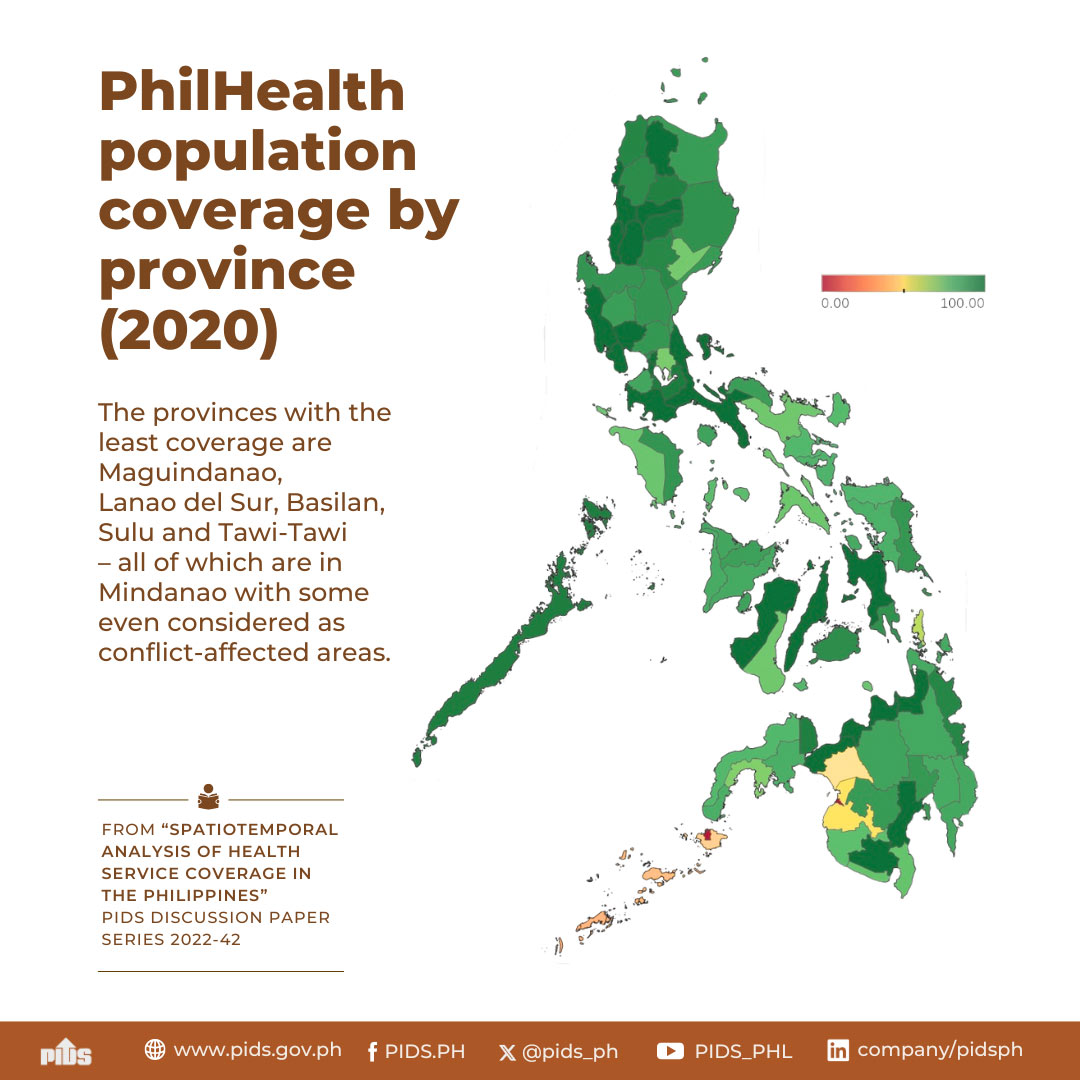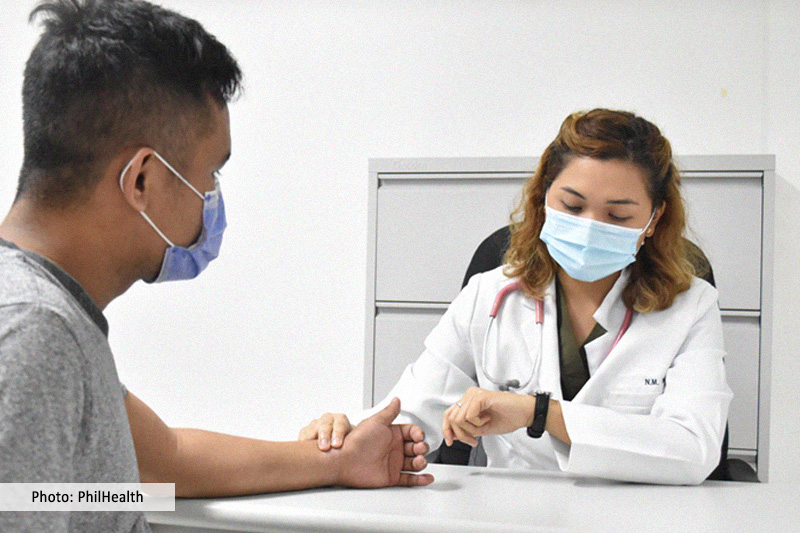
A study from the Philippine Institute for Development Studies (PIDS) revealed that those with usual care providers were more likely to have visited an outpatient facility compared to those without. However, the finding does not necessarily translate to more targeted healthcare utilization, and frequent outpatient visits might not directly correlate with receiving necessary medical interventions.
These were highlighted in a PIDS public webinar featuring the study titled “Trends in Healthcare Service Use among Filipinos with Usual Care Providers”, presented by PIDS Consultant Ida Marie T. Pantig. The work is part of a broader research paper, “Analysis of the National Health Expenditure Survey Round 1 and Design of Survey Protocol for NHES Round 2 (Phase 1)”, which looks at the 2018 National Health Expenditure Survey (NHES) of the Department of Health (DOH).
The data revealed that around 42 percent of households utilized outpatient care within the past six months. However, Filipinos in urban areas, those without health insurance, and indigent members sponsored by the Philippine Health Insurance Corporation (PhilHealth) were found to have lower odds of having a usual care provider. This lack of a designated healthcare professional likely contributes to the access gap. In addition, roughly 50 percent of households with a usual care provider sought outpatient care, compared to those without such providers. This reinforces the notion that having a designated healthcare professional can significantly improve access to care.
The study also highlights the importance of a well-established primary care system, where usual care providers act as “gatekeepers”, ideally directing patients towards appropriate healthcare settings and potentially reducing unnecessary hospitalizations. The need to strengthen primary care infrastructure and promote healthcare-seeking behaviors conducive to preventive care was noted.
As the UHC framework evolves, the efforts to expand primary care coverage, enhance preventive services, and integrate public and private healthcare providers become paramount.
Pantig mentioned that the implementation of the Philhealth’s Konsulta benefit package is designed to improve access to outpatient services and positively impact primary care utilization. It is believed that this will lead to earlier disease detection, improved management of chronic illnesses, and a more cost-effective healthcare system.
This focus aligns with PhilHealth’s recognition that primary care is pivotal in achieving its healthcare objectives, as confirmed by its Senior Vice President Dr. Renato Limsiaco, Jr. who served as a discussant during the webinar. It was articulated that PhilHealth is committed to enhancing sustainability, digitalization, and governance within the organization.
Fellow discussant and University of San Carlos Visiting Research Fellow Dr. Alejandro N. Herrin, capped the discussions by raising the imperative to tackle service delivery and capacity issues, emphasizing the need to address concerns on doctors, diagnostic facilities, pharmacy services, and capacity building, especially at the LGU level.
Gain further insights into the discussion by accessing the recording of the webinar through this link: bit.ly/pidslive051624. ###

